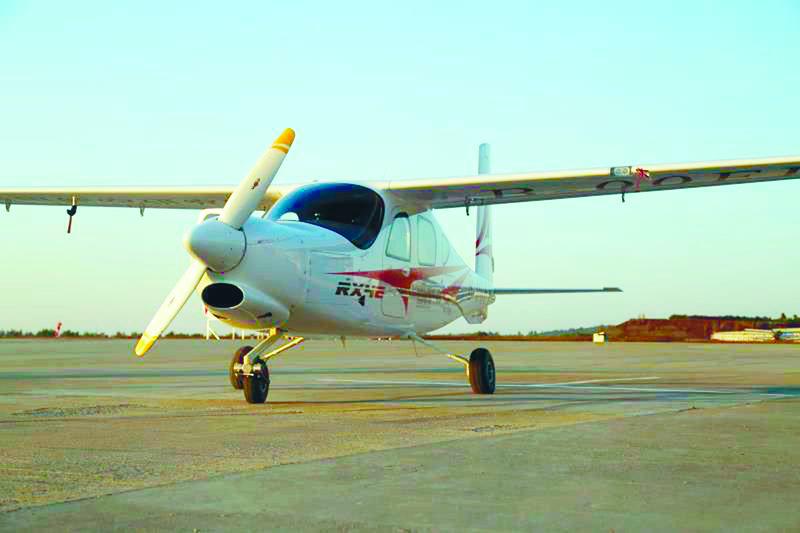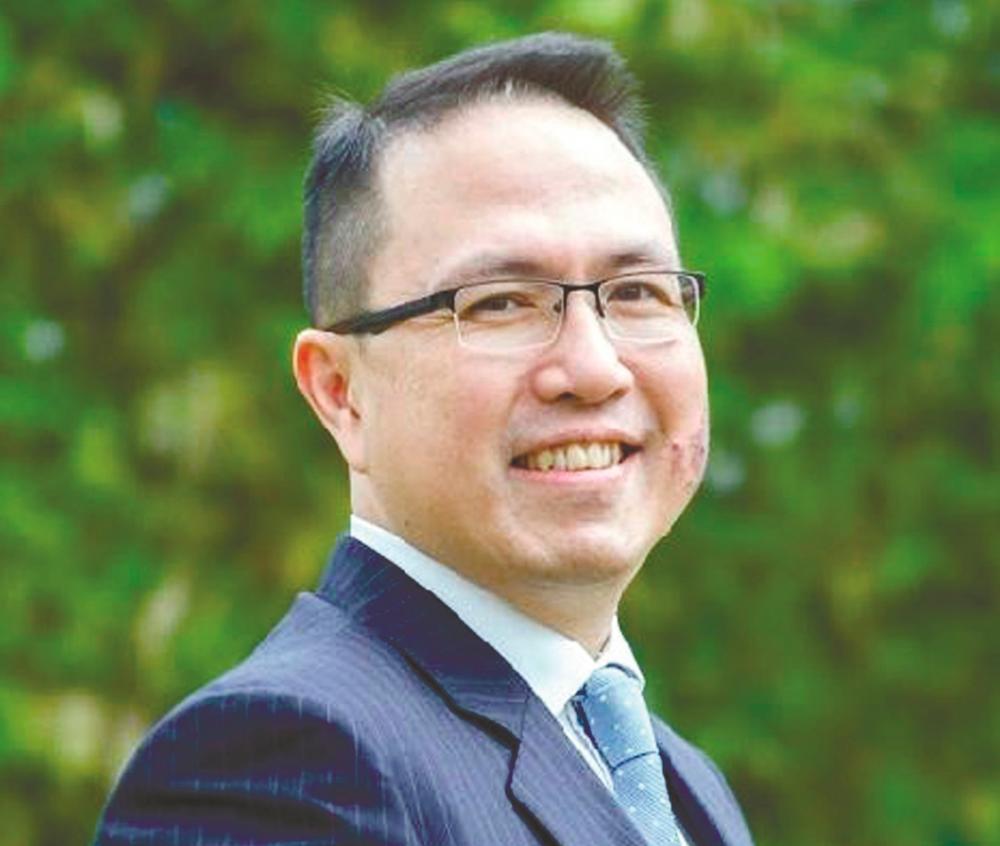KUALA LUMPUR: Green aviation technology company Volar Air Mobility Ltd, which inked the biggest memorandum of understanding (MoU) at the Selangor Aviation Show 2022 (SAS) worth US$150 million (RM675.12 million), aims to introduce the first green air taxi service in Malaysia within two years.
Volar founder and executive chairman Henry Hooi Hing Lee (pix), a Malaysian, said the green air taxi project is driven by its environmental, social, and governance initiatives to reduce aviation carbon emissions, to promote aviation training as well as entrepreneurship to locals. It is in talks with partners on the project and will submit its proposal to the Malaysian government once finalised.
“Subject to regulatory approvals, we hope to be able to establish our green air taxi business within 12–24 months,” Hooi told SunBiz.
Hong Kong-based Volar has three objectives: to fly the first commercially approved electric multi-seater aircraft in the world and potentially bring it to Malaysia; for a Malaysian to pioneer a green air taxi service in Malaysia; and to provide aviation training by partnering with Polytechnic University of Hong Kong.
Volar seeks to bring the RX4E, an electric short take-off and landing (eSTOL) aircraft to Malaysia. Volar is the exclusive distributor of the aircraft globally except in select territories. Developed by Liaoning General Aviation Academy, the small aircraft is able to fit four people and has a maximum speed of 260km/h with an endurance of 90 minutes and a range of 300km.
“The RX4E is pending type certification approval from the Civil Aviation Administration of China and we anticipate this will be obtained sometime next year. The approval is required to allow the plane to be flown for commercial purposes.
“My team and I studied the plane, and decided that we would like to build the first fossil fuel-free green air taxi operation, leveraging off this aircraft, as a start. So the idea is to build a ride-hailing platform,” said Hooi.
Volar will collaborate with car ride-hailing platforms to create a seamless customer experience, where the customer can hail a taxi or car ride to the local airport and from there, fly on Volar to the destination airport. From the airport, customers can go to their desired destination point by hailing another car or taxi. Thus, availing a seamless private air and land mobility option for consumers, which is all done on the phone.
The company believes there will be many electric aircraft in the future and will set up a platform that enables it to bring in new aircraft as they come on stream. Its platform will be a green aircraft agnostic ride-hailing platform, likening it to Uber or Grab e-hailing services, in which customers can choose from a variety of aircraft and book their air taxi at their convenience.
Volar also hopes to promote entrepreneurship by enabling potential pilots on their platform to run their own air taxi service, whereby it will supply the aircraft. It plans to provide an additional career option and source of income to youths in terms of aviation which is not currently available in Malaysia.
Hooi said its journey towards green aviation started at the start of the pandemic in 2020, while looking for investment opportunities in private aviation, it found that most of the private aviation solutions were not environmentally friendly, and Hooi decided to look into a greener solution.
There was a lot of interest in the electric aviation sector and he came across an electric vertical take-off and landing (eVTOL) aircraft but found that it had issues in terms of losing propulsion as it went up, short flying distance of about 30–50km or only within a city, its hefty price tag of about US$2.5 million each as well as its flight rules for inner city mobility which were not clearly established.
“After that research, we decided that we will focus on eSTOL. These are traditional planes with electrical batteries and electric engine and need a short runway, 260m, and they fly within existing rules and are a lot more economical than eVTOL and, more importantly, the use cases extend to intercity mobility (such as routes of) Langkawi-Penang, KL-Ipoh or island-hopping. (Even) places where the road infrastructures are very poor, particular places like Sabah and Sarawak.
“We will initially focus on eSTOL (intercity mobility) and, over time, will induct eVTOL (inner city mobility) as the technology matures and the flight rules for inner city mobility are clearly established and accepted,” Hooi said.
By introducing a green air commuting platform, Malaysia will be able to participate in the global air taxi market estimated to be valued at US$1.5 trillion by 2040 while raising awareness of carbon emissions.
“We have a partnership with Polytechnic University of Hong Kong – they are QS ranked 66 in the world – to set up a flight training academy, to train aspiring pilots and to offer them university education, and the pilots will be trained to fly conventional planes and electric planes.
“We are going to use electric planes to bring the cost of training down. At the moment, pilots have to fly conventional planes which is very expensive, we want to use electric planes to train them,” he explained.
Hooi believes the outlook for the aviation industry is strong as it recovers from the Covid-19 pandemic.
“The real game changer is by making available green aviation, given the reset. Having green aviation come in now is arguably, the best time to leapfrog technology and to address environmental issues,” he opined.
On Thursday, Volar signed an MoU at the SAS to partner with Selangor Aviation & Technology Innovation (Selati) to promote green aviation in Malaysia. The MoU entails potential aircraft manufacturing; maintenance, repair and overhaul; air taxi service training; and research and development for a five-year period. As a joint undertaking, Volar and Selati will establish the Institute for the Development of Electric Aviation Malaysia, a think tank to promote and support the development of green aviation.
Earlier this year, AirAsia Aviation Group Ltd, the holding company for Capital A’s airline group, signed a non-binding MoU with Avolon, an international aircraft leasing company, to lease VX4 eVTOL aircraft to explore the development of air taxi infrastructure in Malaysia.










